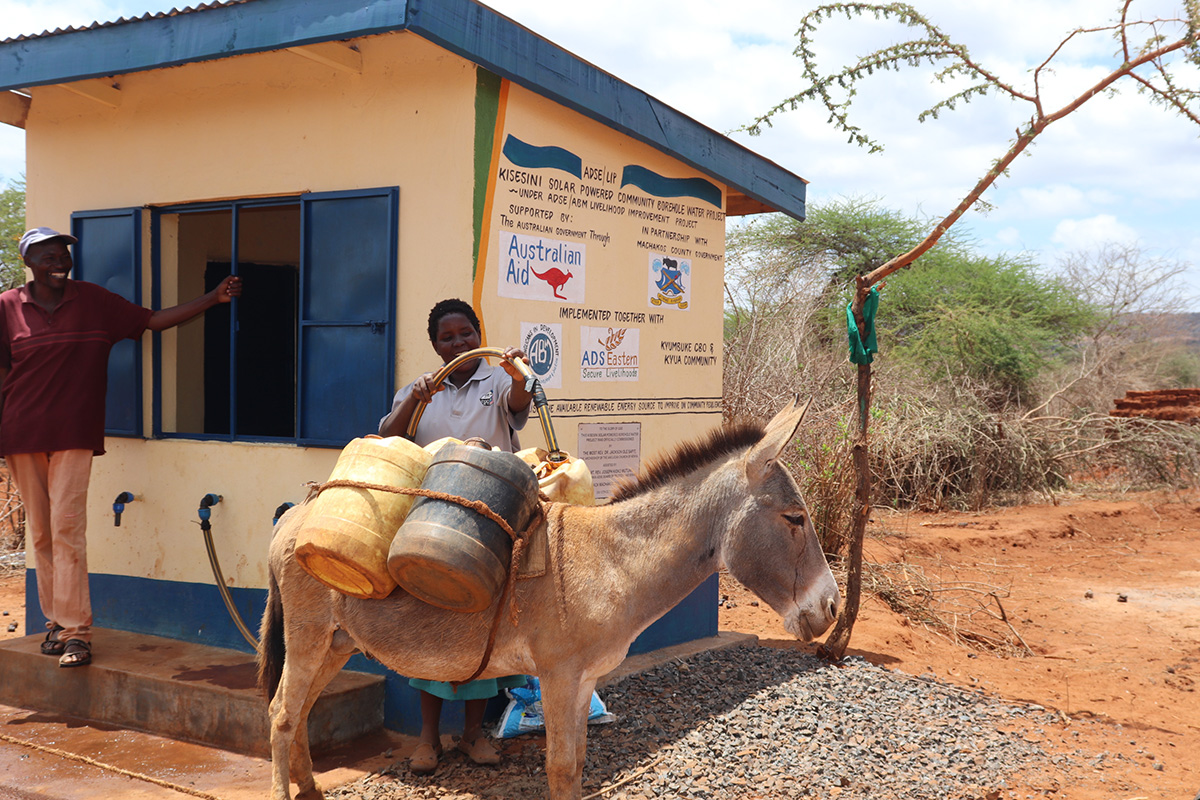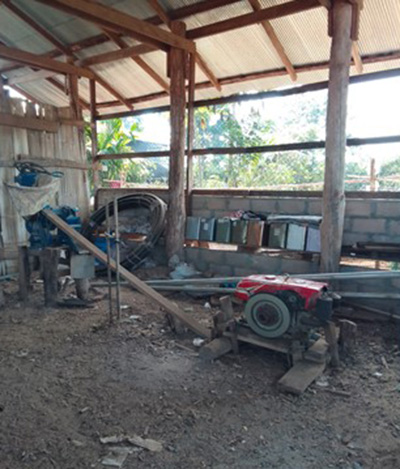Our Effectiveness
AID’s community development effectiveness in 2023
How AID tackled poverty in 2023 in Africa, Asia, and the Pacific
Chickens provided through an AID project to Htee Ka Haw village in Myanmar all died. This, noted an evaluator in 2023, was “due to a village-wide outbreak.”
Not everything in community development goes according to plan. To assess effectiveness and learn lessons, AID and our implementing partners do regular monitoring. Sometimes we hire independent evaluators like the one in Myanmar.
The same Myanmar evaluator noted that in two other villages, Poe Paw Lay and Thịt Or Pha, chickens provided through the AID project thrived and “multiplied over time.” Poor families were subsequently able to sell some of their chickens, using the profits for “buying food, paying for children’s education, and emergency health expenses.”
In 2023, across four countries (Kenya, Myanmar, the Philippines and the Solomon Islands), AID projects helped more than 6,400 people to gain access to agricultural technologies. These included soil and water conservation approaches, seed selection and storage, and making organic fertilisers and pesticides. And in Kenya, Myanmar, the Philippines and Papua New Guinea, more than 4,900 people were reported to have increased their incomes. Both these figures were much higher than in any of the preceding five years.
Sometimes new agricultural technologies led to other benefits besides an increase in income. In the Philippines, IFI-VIMROD reported that 215 of the 255 small-scale farmers that attended their trainings (84%) had subsequently increased their food production by at least 20%. ACOM Solomon Islands reported that 150 secondary school students had visited and learned from their model farm on the outskirts of Honiara. In Papua New Guinea, training the church provided on “asset-based community development” in Dogura Diocese led to the formation of two local cooperatives: one establishing a piggery; the other partnering with a local business for growing and selling hybrid coconuts. Both cooperatives are likely to generate income in 2024.
In Kenya, AID’s partner ADSE reported an increase in the local communities’ green gram (mung bean) and cowpea production from an average of 115 kilograms per acre (2022 baseline), to 256 kilograms per acre. A group of 11 beekeepers massively increased their income from the sale of honey, from KES 5,800 (about AUD$55) per season to KES 82,400 (about $ 784) per season. Instead of increasing the standard of living, these improvements may simply have prevented the farmers from sliding back into poverty as in 2023 Kenya was struck by steep inflation and a five- year drought was followed by flooding across much of the country.
While many of AID’s poverty reduction projects assisted community groups, our project with Eldoret Diocese in Kenya supported business initiatives run by people living with disability (or their carers). Farida Chebet, who cares for her disabled teenage daughter, was assisted with seed capital and financial management training to open a tailoring shop. Her shop profits enabled her to pay school fees for her daughter. Farida explained: “Initially, it was hard to maintain the girl in school due to lack of personal needs like diapers but after I was empowered, the business profits are used to meet the girl’s needs. Through counselling, the girl gained a more positive attitude towards life. This enabled her to improve on her school performance.”
AID continues to support our partners in Kenya, Myanmar, the Philippines and the Solomon Islands to assist local farmers. Our partners in Zambia and Papua New Guinea also integrate poverty reduction measures such as savings groups and ”asset-based community development” training into their broader programs of gender equality and adult literacy respectively.
You can learn more about AID’s community development achievements and humanitarian response in our 2023 Annual Report: https://www.abmission.org/annual-reports/
AID thanks our generous supporters for supporting our partners in their ongoing fight against poverty. We also thank the Australian NGO Cooperation Program for their financial support of some of the projects mentioned here.

Mbulo fetches water from Kisesini community borehole. Improved water access has improved livelihoods in Eastern Kenya. © ADSE. Used with permission.
